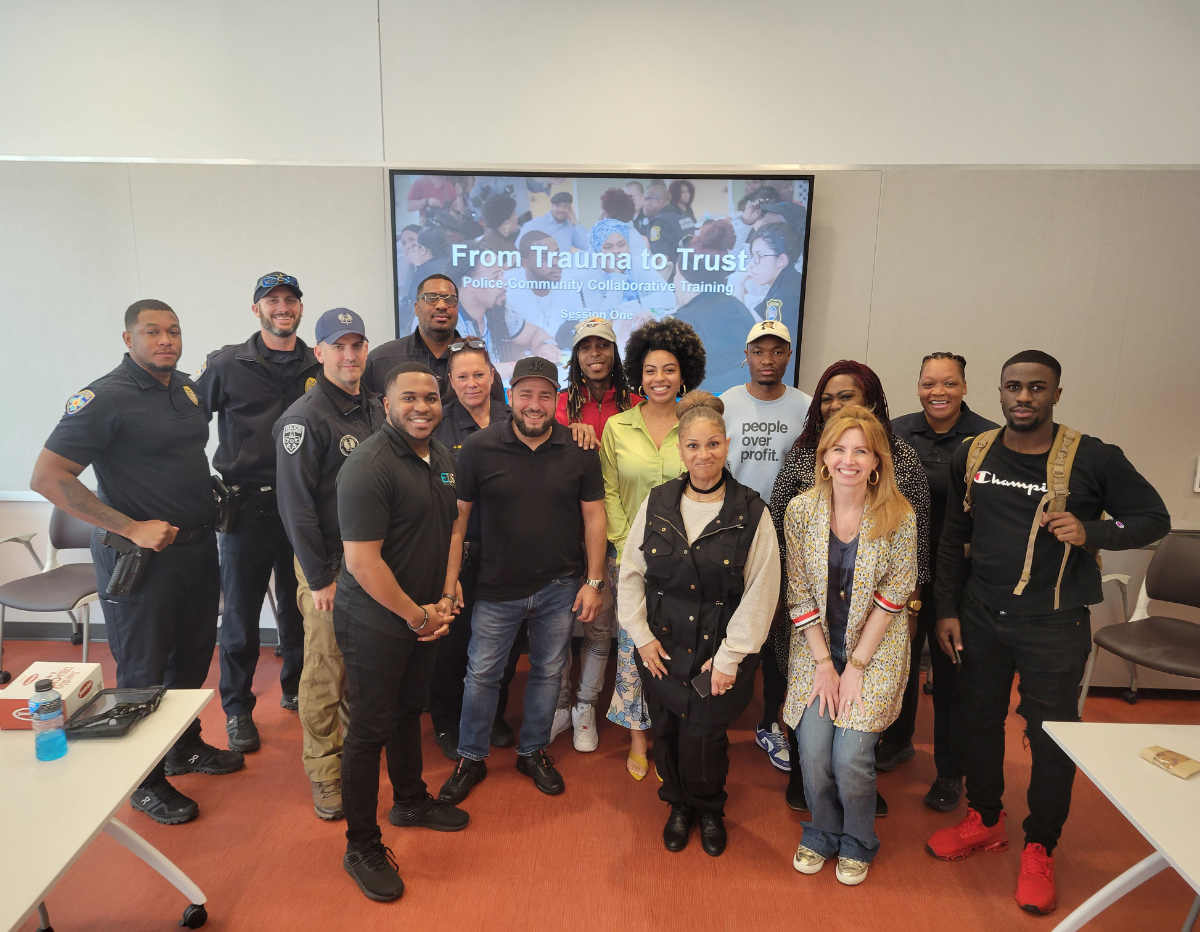
Lionel Latouche, our director of Trauma to Trust (T2T), turned the lights back on as the video of Baton Rouge Police Chief Murphy Paul apologizing for the killing of Alton Sterling came to a close. My chest was tight, feeling the tension of the room as Baton Rouge community members and police officers waited for the facilitators to re-engage. Dr. Monique Swift, a former EJUSA staff member who continues to lead T2T, addressed the room: “What is one word that you think of when you see this apology?”
Baton Rouge has a long history of police violence and oppression, but it also has a strong foundation of grassroots leaders and city officials determined to chart a new path and embrace community-centered public safety. Chief Paul’s apology was as historic as it was needed.
We’ve been honored to partner with leaders in Baton Rouge over the past few years to reimagine justice for their community. And we hit a major milestone in mid-March when Baton Rouge became the second city with a program, officially making T2T national.
This was EJUSA’s first Trauma to Trust workshop in Baton Rouge. It marks both the years of trust and relationship building with the community and police department, as well as the beginning of years of work to come.
The feeling of tension in that room that I described above is common in a T2T session no matter where it happens. These two-day workshops bring together community members and local police officers for guided conversations about the role of trauma and violence in their interactions. The goal of T2T is to illuminate the systems that everyone in the room has been subject to by creating a vulnerable space of sharing and truth to build empathy and reduce future harm.
Reflecting on the police chief’s apology, these words came pouring into the room: peace, understanding, pandering, risk, manipulate, vulnerability, compassion, exhaustion, prepared, fake.
This tangle of honest words led to the most powerful moment of the day for me. The participants began having a more honest and direct conversation, one in which they were allowing themselves the vulnerability of honesty and gaining confidence in finding common ground. All the participants shared the desire for a thriving Baton Rouge, and began to look at the systems around them, rather than the clothes and uniforms they wore.
We discussed economic inequality that has deep roots in Baton Rouge. We talked about some of the roots of that inequality: redlining home loans, underfunded schools, and employment discrimination.. We confronted the exhaustive list of roles that police are expected to fill — from writing tickets to breaching doors with bullet proof vests to providing crisis support for victims. All of these tasks and the primary toolkit they’re given is a ticket book, handcuffs, and weapons.
One officer asked, “Then what can we do about it?” He began to acknowledge the systemic problems, but he couldn’t see what his role would be other than continuing to be the best he could imagine at his job. The answer, the facilitators directed, is to use a trauma-informed lens. That means that officers should understand that harm most often comes from a person who has already experienced harm. And that the system around us can’t be removed from people’s personal actions and that police officers need to show up with deep empathy even while acting in it.
Gerald, a community member, closed with words about systemic racism that sunk in for the room: “The conversation still needs to happen because America as a collective hasn’t acknowledged it. And so I’m going to keep crying. Keep protesting. Keep acting out. Until you see me. Until you acknowledge me.”


